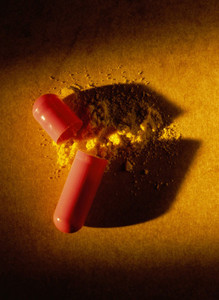Greece is seeking to save approximately Euros 900 million a year and reduce the share of gross domestic product accounted for by healthcare spending from more than 10% in 2008 to under 6%. To help to achieve this, the maximum price of generic drugs will be set at no more than 60% of the originator product’s price, rather than 72% as originally proposed in September 2010.
The latest on healthcare austerity in Greece
Home/Pharma News
|
Posted 08/04/2011
 0
Post your comment
0
Post your comment

The National Organisation for Medicines has taken over responsibility for drug pricing from the Ministry of Health and has promised to provide the new drug positive reimbursement list by the end of January 2011. The list, which is being created using the new pricing mechanism will replace the partial list put in place in September 2010, and will be updated on a quarterly basis. Its introduction has been strongly opposed by the Hellenic Association of Pharmaceutical Companies. These measures are intended to increase the use of generics. Greece currently has one of the lowest rates of generic penetration in Europe, and the aim is for generics to account for 50% of all medicines used in hospitals by the end of 2012.
The new prices form part of the latest austerity package announced by Greece, under a memorandum of understanding agreed with the EU, the International Monetary Fund and the European Central Bank as part of their bailout package for the country.
Healthcare cost containment includes:
- a cut in value added tax on medicines from 11% to 6.5%
- a reduction in pharmaceutical wholesalers’ margins by at least a third from January 2012
- use of the electronic prescription system—which has already cut drug spending by 50% in a pilot programme—to be in place at all the major social security funds.
The measures will benefit generics producers to the extent that they are ‘highly likely’ to get a greater volume of their products onto the Greek market, say analysts. However, these benefits will be limited by the price cuts being imposed on generics and manufacturers could find it difficult to maintain profitability on cheaper drugs, unless they are supplying them in large volumes. According to the latest inflation figures from Eurostat, the price of pharmaceuticals contracted by an average of 16% between June and October 2010, compared with drug prices in 2009. If price reductions in Greece continue in frequency and intensity, they will have a great impact on the generics prices around Europe, partly due to the reference pricing system used by several governments.
Despite the drop in prices, Greece lost 33% of its parallel export trade last year. This was largely as a result of multinationals not fully supplying the local market with medicines, but also a depressed business climate in client nations such as Germany and the UK.
Greece’s pharmaceutical market remains a challenging environment for both the local and international pharma industry and the outlook for the industry is weak. 2010 saw an outright contraction in total pharmaceutical sales, but weak growth is expected to resume in the second half of 2011.
More encouragingly, Greece is clearing all hospital debts to medical suppliers from 2005 till September 2010. As of October 2010, debts from 2005, 2006 and the first half of 2007 had ‘almost been paid off’ at a cost of Euros 1.5 billion (US$2 billion). However, there is a significant discrepancy between official hospital debt and the amount claimed by Greek pharmaceutical associations.
Related article
Source: IHSGlobal, PharmaTimes
Guidelines
US guidance to remove biosimilar comparative efficacy studies
New guidance for biologicals in Pakistan and Hong Kong’s independent drug regulatory authority
Policies & Legislation
EU accepts results from FDA GMP inspections for sites outside the US
WHO to remove animal tests and establish 17 reference standards for biologicals
Formycon signs new aflibercept biosimilar pacts and launches ranivisio in Europe

Home/Pharma News Posted 13/11/2025
Bio-Thera and Stada expand biosimilars alliance to include tocilizumab

Home/Pharma News Posted 20/10/2025
The best selling biotechnology drugs of 2008: the next biosimilars targets








Post your comment